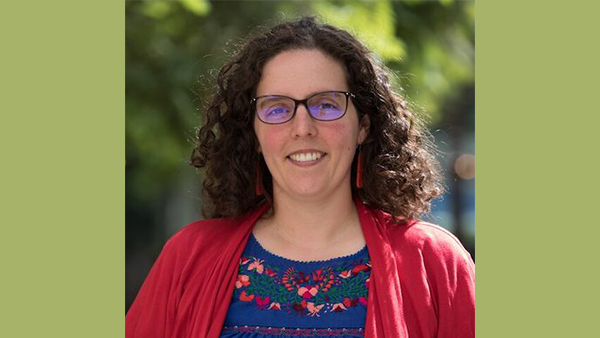|
Farmworkers are still “excluded Americans,” and the COVID-19 pandemic has only made this harder to ignore. Farmworkers and their families have endured higher rates of illnesses and deaths due to COVID-19, due to the same unsafe, crowded, and under regulated working and living conditions that have been a problem for decades.
Dr. Dvera Saxton, associate professor in the department of anthropology, an activist anthropologist and author of "The Devil's Fruit," has documented these injustices, more specifically the ways that farmworkers embody exposure to pesticides, traumatic and unsafe work environments, and hostile anti-immigrant sentiment, and she has worked to change and challenge these conditions.
Saxton will be on a panel discussion titled "Farmworkers Are Essential," at noon Tuesday, March 23. The event, hosted by The Cross Cultural and Gender Center and the College Assistance Migrant Program, hopes to shed light on what we as a community can do better to support farmworking communities during COVID-19, and why not classifying farmworkers as “essential” employees is unjust.
RSVP by clicking here: https://bit.ly/3e6RSvu.
Other panelists include Lizbeth A. Gutierrez Lopez, president of Movimiento of Oaxaqueño Leaders in Education; Eddie Rios, an assistant vineyard manager and alumnus; and Armando Elenes, United Farm Workers secretary treasurer. Professor Emeritus Dr. Sudarshan Kapoor will moderate the panel.
The plight of farmworkers remains very visible for those who care to see it, said Saxton who conducted research on her book in Pájaro and Salinas Valleys between 2010 and 2013. While Cesar Chavez, Dolores Huerta, and countless other farmworkers and activists struggled long and hard for union contracts, occupational health and safety protections, and dignity and respect at work and in larger society, the overarching structures that keep farm work as one of the most dangerous, underpaid, and underappreciated professions remain intact, she said.
At Fresno State, many students and their families live and labor in these conditions, and have watched friends, family and community members die during the pandemic. The digital divide is intensified with all students studying from home, and in farmworker households that already struggle. During The Cross Cultural and Gender Center’s recent program, “The Impact of COVID-19 on Black, Indigenous, and People of Color (BIPOC),” students expressed concern and unhappiness.
All faculty, staff and students are invited to join the panel discussion to share stories, resources and strategies to build a better, healthier, sustainable and livable future. For more information, contact Deyanire Del Toro at ddeltoro@csufresno.edu.
|


